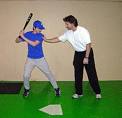Visits: 0
Patience is a lot like perspective. People have it UNTIL there own child is involved. Most of us parents are guilty of it. We display patience with other people’s kids, but when our own child does not perform up to expectations, we get upset and display our displeasure with words or actions. Unfortunately, it only takes one or two times when a parent displays their displeasure that negatively shapes their child’s future in sports.
Often, I would remind players and parent’s alike about the famous story of the race between the tortoise and hare. Often, the best players when young (hares) “burn out” at a relatively young age, whereas players, who keep working and enjoying the game (tortoises), become the best players at the higher levels of play.
With this in mind, here are things that parents and coaches should realize in order to help develop patience as a sports parent.
- Sport’s skill proficiency is difficult and gets more and more difficult as an athlete moves up the sports ladder.
- Just because something appears easy, especially on TV, does not meant it is easy.
- Just because they (parents) were good at something does not automatically make their child good at it.
- Players who do not choose to practice probably are not having fun because:
A. They may not love the game as much as you would like them to.
B. They don’t like it as much as you think that they like it.
C. Coaches (parents) do not have the know-how of making practice fun.
5. Pushing kids to practice more is not recommended and will usually kill any chance that they will like the sport more down the line. (Suggesting they practice and helping them understand that good results only come with practice is OK, though.)
6. Players will not automatically be able to do something just because you tell them to or just because you point out what they are doing wrong.
7. Along the same line – habits do not change or form overnight – it usually takes a great amount of practice and time to develop habits. Someone may point out a player’s mechanical flaws after observing them for a few repetitions, but it will take numerous repetitions to change their muscle memory.
8. Describing the action (your swing is incorrect, i.e.) is better than saying “you” (the individual) can’t do it that way.
9. Negative actions and facial expressions are as detrimental as words.
10. People who display patience when working with kids generally develop patient ballplayers who understand it takes time to be successful.
11. Expectations should be reasonable and should focus on “effort” and not results.
12. Long-range goals are better than short-range goals.
13. It is very hard to keep an unemotional demeanor or voice, especially when one’s own child does not seem to try or play up to our expectations, but it is important to “cool off” before addressing your concerns.
###
Jack Perconte played 12 years of professional baseball, including seven in the majors for the Dodgers, Indians, Mariners and White Sox, posting a career .270 average in the majors and a .311 mark in the minors. He was a 16th round draft pick of the Los Angeles Dodgers in 1976 and made his big league debut with the Dodgers in 1980. After retiring from professional baseball in 1987, Perconte opened a baseball training academy in Naperville, Ill. The hitting drills, mental training and coaching tips found in “The Making of a Hitter” (www.themakingofahitter.com) were culled from the 60,000 hitting lessons Perconte estimates he gave while operating the academy.




You must be logged in to post a comment Login